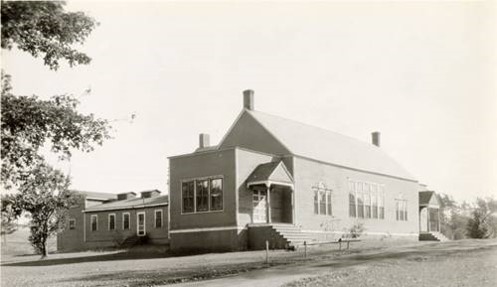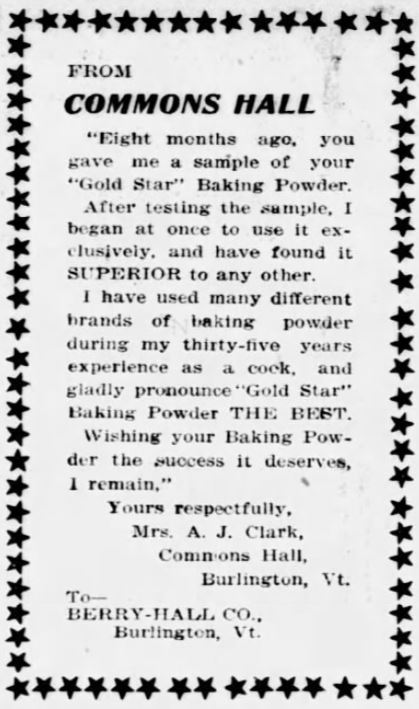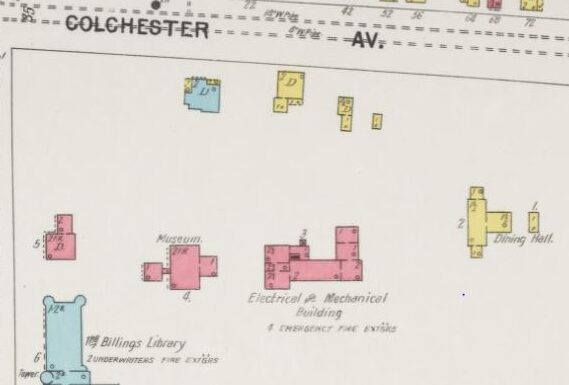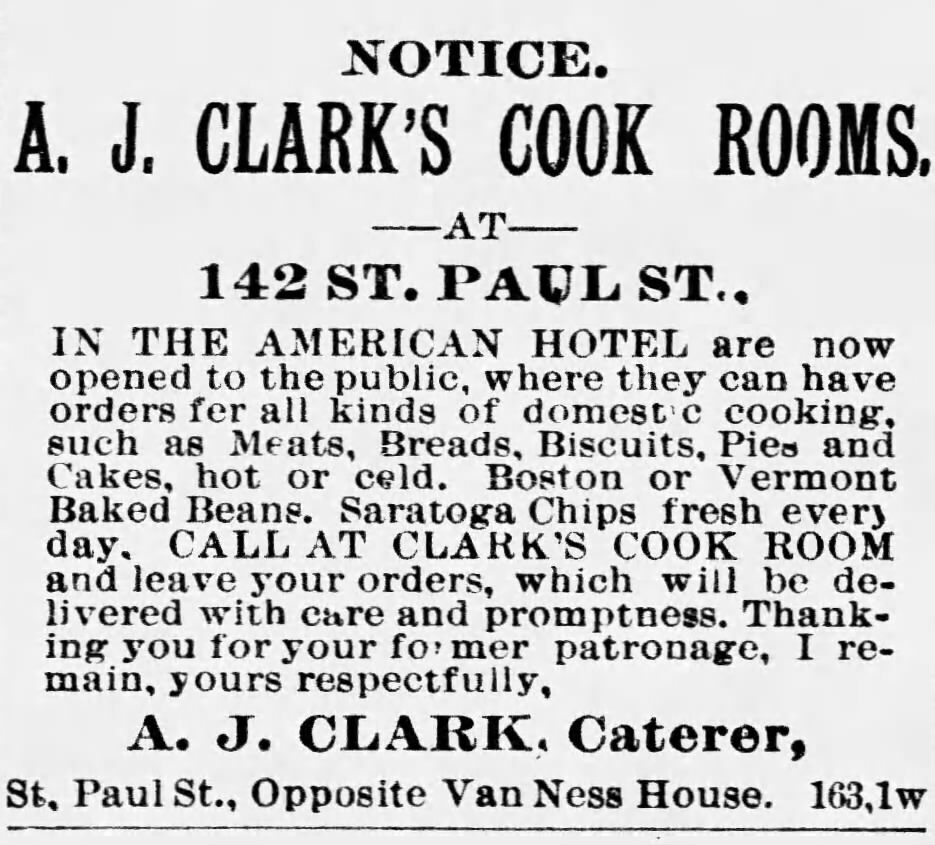The 1900 federal census recorded approximately 115 Black residents in Burlington, Vermont. Almon J. Clark, listed as colored in the 1900 census, lived with his wife Anna (54), his daughters Mary (24) and Ellen (22) and his sons John (19) and James (16) at 41 Colchester Avenue. This address was for a building that once stood on the UVM campus known as Commons Hall, or the Hash House.
Commons Hall was erected on UVM’s back campus in 1885 as a restaurant and eating house. The university’s annual Catalogues advertised “a Commons Hall on the College grounds at which good table board is furnished to students at cost.” Until 1908, UVM hired contractors to manage the dining service, including A. J. Clark.

Commons Hall in 1929, shortly before it was scheduled for demolition to make way for the Fleming Museum.
Almon J. Clark was born in Virginia around 1852, and by 1870 was living in Hinesburg, Vermont, working as a laborer for a white farmer, Harry Weed. He married Anna Kenna, who was born in Ireland, and by 1880 they were living in Burlington. Clark worked for Peck Brothers, dealers in carpets and curtains, and for some years worked for Burlington caterer H. N. Coon. Clark also operated several food enterprises. He advertised his own catering business in in 1887, and in 1889, the city directory listed Clark as a baker as well as a Peck employee. In 1892, the city’s Board of Alderman approved Clark’s request for a short-term “eating stand” between City Hall and the library. City directories indicate that Anna Clark also worked as a cook. In 1892, she was listed as a cook at Commons Hall and in 1895 at the Sherwood Hotel.
In late September 1896, the Burlington Free Press announced that A. J. Clark, “the well-known caterer,” took over the management of Commons Hall. City directories first list Clark as the cook and then the proprietor. In December, the Free Press reported that the Clarks offered an excellent Christmas dinner to students who were spending their holidays in college lodgings, with decorated tables and handsome souvenir menus. The students must have been pleased with Clark’s management, because on New Year’s Day they recognized Mr. and Mrs. Cook with a speech and an elegant chair. The Free Press noted, “The College yell brought the pleasant occasion to a close.” The Clarks may have operated Commons Hall as a family affair. Anna was an experienced cook, and the children, all listed as servants in the 1900 census, may have helped.

The Berry-Hall Company in Burlington shared Anna Clark’s testimonial “from Commons Hall” for Gold Star Baking Powder, which she based on her 35 years of experience as a cook (Burlington Free Press January 11, 1901)
Despite having 100 patrons at Commons Hall, Clark leased another boarding house at 92 St. Paul Street in 1902. Anna Clark died in 1903 and the Clark family left Commons Hall. Clark gave up the St. Paul Street business after only operating it for a short time. The city directory for 1904 notes that Clark had left Burlington. He remarried and moved to Cambridge, Massachusetts, where he worked as a houseman, janitor and steward there from 1911 to 1927. By 1928, Clark and his wife Priscilla were back in Burlington, working as a cook at Sally’s Restaurant with his daughter Mary. He died in 1932 and was buried in St. Joseph’s Cemetery.
To learn more about Burlington’s Black residents at the end of the nineteenth century, read Harvey Amani Whitfield’s article, African Americans in Burlington, Vermont, 1880–1900, in Vermont History Vol. 75 (2007), pages 101–123.
Contributed by Prudence Doherty, Public Services Librarian



